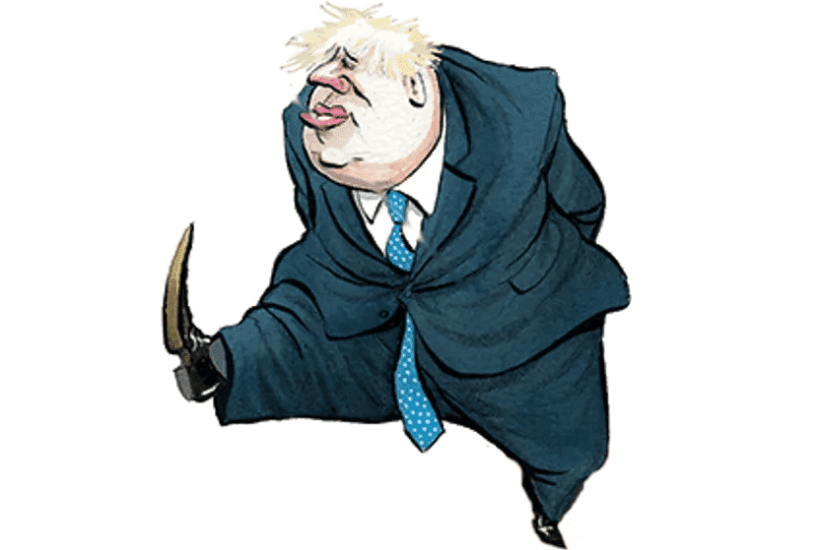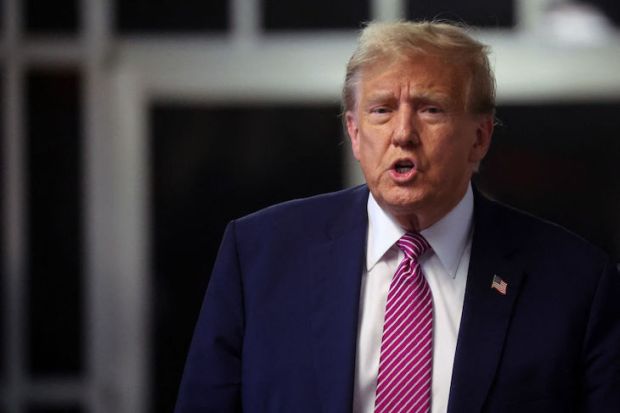Asked recently whether Boris Johnson, Britain’s soon-to-be-ex-Prime Minister, would ever return to the highest elected office in the land, super-loyalist Nadine Dorries enigmatically replied: ‘Who knows what the future will hold?’
With Johnson allies reportedly looking to trade a safe Conservative seat in return for a peerage with any elderly MP hoping to secure a retirement in ermine, it looks like the hero of 2019 is, at the very least, thinking of making a come-back before he has even gone. Indeed, most polls suggest the next general election will be disastrous for the Conservatives and predict Johnson’s constituency of Uxbridge will fall to Labour. With being an MP a prerequisite to standing in any leadership contest, Johnson is keeping his options open.
But, while like Dorries, we do not know the future, we do know the past. And if that is any guide, Johnson is unlikely to make a return to the party leadership and No. 10. For in modern times only one politician has accomplished that double trick: William Gladstone. After losing the 1874 election, Gladstone stepped down as Liberal leader but – and here Johnson’s ears might prick up – at the end of the decade led a popular crusade against Conservative foreign policy. Notably, his campaign focussed on its failure to punish the Ottoman Turks for brutally suppressing an uprising of Bulgarians seeking independence from their rule. The series of speeches Gladstone delivered to mass audiences, all faithfully reported in the press, constituted what historians now regard as the first modern political campaign. Gladstone’s highly personal pitch was aimed as much at the government of Benjamin Disraeli as those lesser mortals who replaced him as Liberal leader, and it catapulted him back into the leadership of his party and country in 1880.
Since those distant Victorian times only two former party leaders and prime ministers – Arthur Balfour and Alec Douglas Home – have returned to the cabinet, both as Foreign Secretary, a role Johnson has already performed and at that pretty poorly. In any case, even his likely successor Liz Truss, currently selling herself to Conservative members as a Johnson loyalist, has publicly rejected welcoming his over-powering presence in her cabinet.
The experience of other ex-leaders and premiers looks even less encouraging. Edward Heath’s great sulk on the backbenches after being deposed by Margaret Thatcher in 1975 saw him make frequent attacks on his successor. Heath imagined Conservatives would turn to him after what he hoped would be his successor’s brief and disastrous tenure. Perhaps that is Johnson’s fantasy too. But Thatcher’s prolonged electoral success meant Heath instead became an increasingly isolated figure in his own party.
It is unclear how seriously Margaret Thatcher or Tony Blair ever wanted to return to power. But each certainly sought to be back seat drivers and attempted to keep their parties on the policy path with which they were most associated. Blair however failed in that regard: indeed, Jeremy Corbyn won the Labour leadership in 2015 on the basis that he was the only non-Blairite in the field. Keir Starmer has recently praised his predecessor but every time he does, he is met by a fusillade of hateful tweets from party members claiming Blair is a neo-liberal war criminal.
Perhaps Blair will enjoy a more positive influence once he has made his final journey. Death certainly enhanced Thatcher’s influence in her party. She made her immediate successor John Major’s life a misery when he failed to live up to expectations; but while she let her displeasure be known she could do little to overthrow him. In today’s Conservative leadership campaign however both candidates claim the mantle of ‘Thatcherite’. Rishi Sunak has made a pilgrimage to Grantham, Thatcher’s birthplace, while Liz Truss dresses in strikingly similar ways to the late leader. More seriously, both adhere to something close to her core vision: a deregulated market, a small state and tax cuts, even if the timing of achieving those ambitions is different.
Thatcher, like Winston Churchill, has reached the statue-erecting stage of influence. Like him she has become a mythical figure which the passage of time – and poor historical memories – means she can be mobilised for a variety of different causes. During the Brexit referendum Churchill was famously claimed by both Leave and Remain. One of those who indulged in this practice most egregiously was Johnson himself. He was also all too happy to encourage supporters to project onto him various Churchillian characteristics, however factually bogus they might have been. It helped him become party leader.
Churchill’s mythic status derived from his role in helping save Britain from losing to Hitler in 1940 while Thatcher is the woman some believe saved Britain from the unions and an ever-expanding state in the 1980s.
Johnson might achieve a similar legendary status for Getting Brexit Done: to some he already has it. Just now, though, how far Brexit is ‘done’ and what its impact on the economy is remains uncertain. But, let us say, in five decades, the length of time Jacob Rees-Mogg once said it would take for the benefits of Brexit to become fully apparent, there may be Johnson statues adorning London, Henley and Uxbridge. With partygate and the other reasons for his downfall long forgotten there might be Conservative leaders falling over themselves to claim his mantle. But by then Johnson will probably be past caring. As he might himself say: them’s the breaks.
Got something to add? Join the discussion and comment below.
Get 10 issues for just $10
Subscribe to The Spectator Australia today for the next 10 magazine issues, plus full online access, for just $10.




















Comments
Don't miss out
Join the conversation with other Spectator Australia readers. Subscribe to leave a comment.
SUBSCRIBEAlready a subscriber? Log in